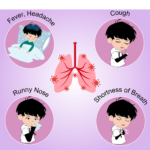Anger is a natural human emotion that is often triggered by a perceived threat or injustice. It can be a powerful emotion that can lead to both positive and negative consequences.
On the positive side, anger can motivate us to take action to protect ourselves or others, or to stand up for what we believe in. It can also help us to assert ourselves and to set boundaries.
However, anger can also have negative consequences if it is not managed effectively. It can lead to aggressive or violent behavior, as well as to physical and mental health problems.
Here are some of the ways that anger can affect a person:
- Physical: Anger can cause a number of physical changes, including increased heart rate, blood pressure, and respiration. It can also lead to muscle tension, headaches, and stomach problems.
- Mental: Anger can affect our thoughts and emotions, making us feel more irritable, anxious, and stressed. It can also lead to difficulty concentrating and making decisions.
- Behavioral: Anger can lead to aggressive or violent behavior, as well as to withdrawal and avoidance. It can also make it difficult to maintain relationships.
If you are struggling with anger, there are a number of things you can do to manage it effectively.
These include:
- Identify your triggers: What are the things that typically trigger your anger? Once you know your triggers, you can start to avoid them or develop strategies for coping with them.
- Express your anger in a healthy way: If you do feel angry, it is important to express your anger in a healthy way. This could mean talking to someone you trust, exercising, or engaging in relaxation techniques.
- Learn to manage your stress: Stress can often lead to anger, so it is important to find ways to manage your stress levels. This could include exercise, relaxation techniques, or spending time with loved ones.
- Seek professional help: If you are struggling to manage your anger on your own, it is important to seek professional help. A therapist can teach you coping mechanisms and help you to develop a plan for managing your anger.
Anger is a normal emotion, but it is important to manage it effectively so that it does not have negative consequences. If you are struggling with anger, there are a number of things you can do to help yourself.
Anger is a common human emotion that can be triggered by a variety of factors, such as feeling threatened, frustrated, or hurt. It can manifest itself in physical symptoms, such as an increased heart rate, sweating, and muscle tension. It can also manifest itself in emotional symptoms, such as feeling frustrated, irritable, or aggressive.
Some key phrases can be used to describe the physical and emotional experience of anger.
For example, someone who is feeling furious might say that they are “seeing red” or “boiling over.” Someone who is flaring up might say that they are “losing their cool” or “going ballistic.”
Feeling furious is a strong form of anger. When people are furious, they may feel like they are going to explode. They may also feel like they are seeing red or that they are boiling over.
Flaring up is a sudden increase in anger. When people flare up, they may become very angry very quickly. They may also say or do things that they later regret.
For instance, I was so angry that I was flaring up. I felt like I was going to explode, and I was about to boil over. I knew I had to do something to calm down before I went ballistic.
Seeing red is another phrase that is used to describe the feeling of being so angry that you see everything as red. This is a common experience for people who are experiencing a great deal of anger. When people see red, they may feel like they are going to explode or that they are losing control.
Same goes with Raging, another strong form of anger. When people rage, they may become very angry and lose control of their emotions. They may also say or do things that they later regret.
The list goes on and one such example that comes to mind is; blowing a gasket that is used to describe the feeling of being so angry that you lose control of your emotions. This phrase is often used to describe people who are yelling, swearing, or behaving in a destructive way.
“The coach blew a gasket when the player missed the easy layup. He started yelling and swearing at the player.”
Losing your cool is another phrase that is used to describe the feeling of losing control of your emotions. This phrase is often used to describe people who are yelling, swearing, or behaving in a destructive way.
“The teacher lost her cool when the student kept talking in class. She started yelling and threatening to send the student to the principal’s office.”
Least but not last, going ballistic is another phrase that is used to describe the feeling of becoming extremely angry and behaving in a violent or destructive way. This phrase is often used to describe people who are yelling, swearing, throwing things, or even physically harming themselves or others.
“The player went ballistic after he was called for a foul. He started yelling and throwing his jersey on the ground.”
It is important to note that anger is not always a bad thing. Sometimes, anger can be a motivator for positive change. However, it is important to express your anger in a healthy way so that it does not lead to negative consequences. If you are struggling with anger, there are many resources available to help you. You can talk to a therapist, join an anger management group, or read self-help books. There are also many online resources that can provide you with information and support.
How Anger can impact your Social Life and Professional front?
Anger can have a significant impact on both social life and professional life. Here are some of the ways that anger can impact social life:
- Damage relationships: Anger can damage relationships with friends, family, and romantic partners. If you are frequently angry or express your anger in an aggressive way, it can be difficult to maintain healthy relationships.
- Lead to isolation: Anger can also lead to isolation. If you are afraid of expressing your anger, you may withdraw from social situations and avoid interacting with others. This can make it difficult to build new relationships and maintain existing ones.
- Create a negative atmosphere: Anger can create a negative atmosphere in social settings. If you are frequently angry or express your anger in an aggressive way, it can make others feel uncomfortable and stressed. This can make it difficult to enjoy social activities and build relationships.
Here are some of the ways that anger can impact professional life:
- Damage your reputation: If you are frequently angry or express your anger in an aggressive way at work, it can damage your reputation. You may be seen as difficult to work with or as someone who is not in control of their emotions. This can make it difficult to get promoted or to be taken seriously by your colleagues.
- Lead to conflict: Anger can lead to conflict at work. If you are frequently angry or express your anger in an aggressive way, you may find yourself in arguments with your colleagues or your boss. This can make it difficult to get your work done and to maintain a positive work environment.
- Reduce your productivity: Anger can reduce your productivity at work. If you are frequently angry or express your anger in an aggressive way, you may find it difficult to concentrate and to get your work done. This can lead to missed deadlines and poor performance.
If you are struggling with anger, it is important to find ways to manage it effectively. This will help you to maintain healthy relationships, build a positive reputation at work, and be more productive.
Here are some tips for managing anger:
- Identify your triggers: What are the things that typically trigger your anger? Once you know your triggers, you can start to avoid them or develop strategies for coping with them.
- Express your anger in a healthy way: If you do feel angry, it is important to express your anger in a healthy way. This could mean talking to someone you trust, exercising, or engaging in relaxation techniques.
- Learn to manage your stress: Stress can often lead to anger, so it is important to find ways to manage your stress levels. This could include exercise, relaxation techniques, or spending time with loved ones.
- Seek professional help: If you are struggling to manage your anger on your own, it is important to seek professional help. A therapist can teach you coping mechanisms and help you to develop a plan for managing your anger.
Can Meditation help control Anger?
Yes, meditation can help you control anger. Meditation is a practice that involves focusing your attention on the present moment and letting go of thoughts and emotions. This can help you to become more aware of your anger and to learn how to manage it in a healthy way.
Here are some of the ways that meditation can help you control anger:
- Increases awareness: Meditation can help you to become more aware of your thoughts, feelings, and bodily sensations. This can help you to identify the triggers that lead to your anger and to learn how to respond to them in a more constructive way.
- Reduces stress: Meditation can help to reduce stress levels, which can lead to a reduction in anger. When you are stressed, your body releases hormones that can make you feel more irritable and angry. Meditation can help to lower these hormone levels and help you to feel calmer and more relaxed.
- Improves self-control: Meditation can help you to improve your self-control, which can help you to manage your anger in a more constructive way. When you are able to control your thoughts and emotions, you are less likely to lash out in anger.
If you are struggling with anger, meditation can be a helpful tool for managing it. There are many different types of meditation, so you can find one that works for you. You can start by meditating for a few minutes each day and gradually increase the amount of time you meditate as you become more comfortable with the practice.
Here are some tips for meditating for Anger Management:
Find a quiet place where you will not be disturbed.
- Sit in a comfortable position, either on the floor or in a chair.
- Close your eyes and focus on your breath.
- As you breathe in, say to yourself, “I am calm.”
- As you breathe out, say to yourself, “I am relaxed.”
- Continue to focus on your breath and repeat the phrases to yourself for a few minutes.
- If your mind wanders, gently bring it back to your breath.
- When you are finished, open your eyes and take a few deep breaths.
Meditation is not a quick fix for anger management, but it can be a helpful tool for learning how to manage your anger in a healthy way. With regular practice, you can learn to become more aware of your anger and to respond to it in a more constructive way.
Conclusion:
Anger is a normal human emotion, but it is important to manage it effectively so that it does not have negative consequences. There are many different ways to manage anger, and what works for one person may not work for another.
If you are struggling with anger, there are many resources available to help you. You can talk to a therapist, join an anger management group, or read self-help books. There are also many online resources that can provide you with information and support.
Remember, you are not alone. Anger is a common emotion, and there are many people who can help you to manage it in a healthy way.










